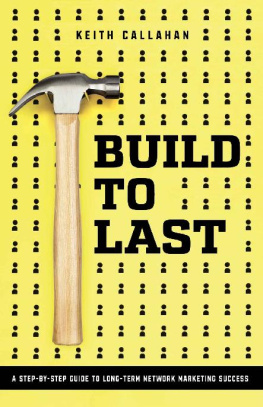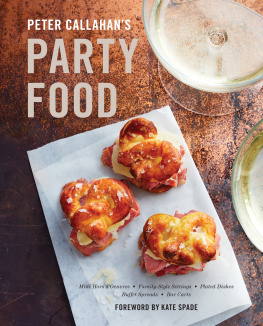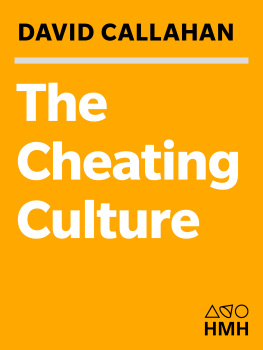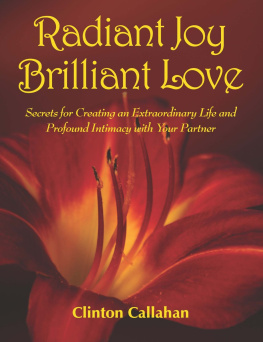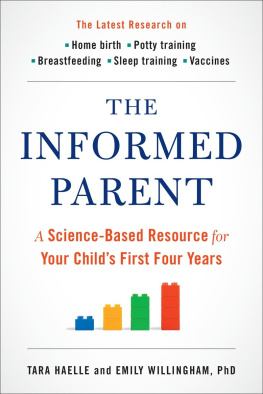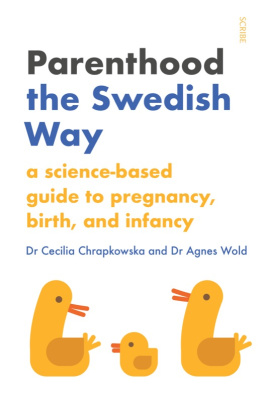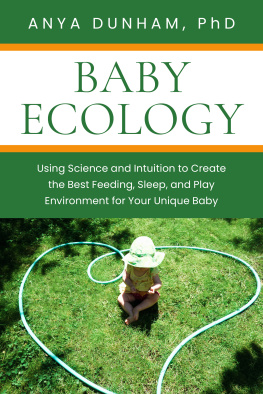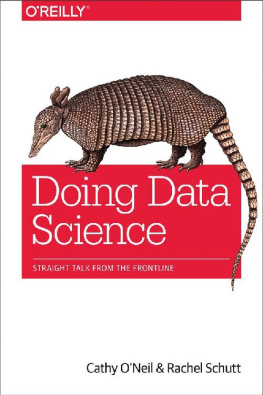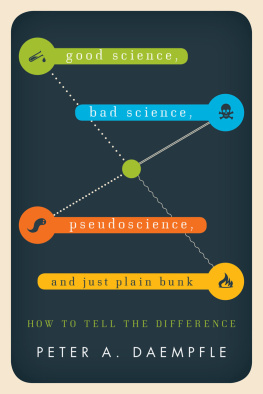The Science of Mom
A Research-Based Guide to Your Babys First Year
ALICE CALLAHAN, PhD

FOR MY TWO CHARLOTTES
the one who brought
me into the world
and the one who brought me
into motherhood
Advance Praise for The Science of Mom
Yes! An easy-to-read, fascinating, nuanced review of the science behind new parents biggest health questions. Many of these issuesinfant sleep, breastfeeding, vaccineshave or will hit your Should I panic? button. With gentle guidance, Alice Callahan puts your fears to rest.
TRACY CUTCHLOW, author of Zero to Five: 70 Essential Parenting Tips Based on Science (and What Ive Learned So Far)
Too many of todays parents treat science as a weapon, using it to justify some choices and condemn others. Yet, most dont fully understand what science can and cannot tell us. By giving parents a comprehensive understanding of how science relates to parenting, Alice Callahan has helped us turn this weapon into a tool for peace. Callahan untangles basic scientific concepts, reveals the realities and limitations of research, and advocates for a measured approach to parenting science that eschews absolutes and acknowledges nuance. The Science of Mom is a rare gem in the parenting canonsmart, sensitive, and a lifesaver for a generation of parents caught in the nebulous spiders web of Internet wisdom.
SUZANNE BARSTON, author of Bottled Up: How the Way We Feed Babies Has Come to Define Motherhood, and Why It Shouldnt
Families routinely search for health information. The Science of Mom makes it easy collecting evidence for health decisions and putting it into perspective with a mom-to-mom connection. Callahans advice is thoughtful, backed by science, and feels fueled by love. She is willing to provide powerful advice when detailing the science and safety of vaccines. Keep this book in arms reach as you support your infant for calm and direction.
WENDY SUE SWANSON, MD, MBE, FAAP Seattle Childrens Hospital, author of Mama Doc Medicine: Finding Calm and Confidence in Parenting, Child Health, and Work-Life Balance
Fascinating! Think of all the controversial, hot-button topics that parents obsess about in a childs first yearfrom vaccines and feeding to bed-sharing and sleep training. Weighing the scientific evidence, Callahan offers balanced insights and in-depth answersa far cry from the oversimplified advice prescribed by many parenting experts. The result: a must-have guide thats substantive and extremely engaging.
JENA PINCOTT, author of Do Chocolate Lovers Have Sweeter Babies? The Surprising Science of Pregnancy
2015 Alice Callahan
All rights reserved. Published 2015
Printed in the United States of America on acid-free paper
9 8 7 6 5 4 3 2 1
Johns Hopkins University Press
2715 North Charles Street
Baltimore, Maryland 21218-4363
www.press.jhu.edu
Library of Congress Cataloging-in-Publication Data
Callahan, Alice, 1980
The science of mom : a research-based guide to your babys first year / Alice Callahan, PhD
pages cm
Includes bibliographical references and index.
ISBN 978-1-4214-1732-5 (pbk. : alk. paper) ISBN 978-1-4214-1733-2 (electronic) ISBN 1-4214-1732-4 (pbk. : alk. paper) ISBN 1-4214-1733-2 (electronic)
1. InfantsCare. 2. InfantsHealth and hygiene.
I. Title.
RJ61.C23 2015
618.9201dc232014041138
A catalog record for this book is available from the British Library.
Special discounts are available for bulk purchases of this book. For more information, please contact Special Sales at 410-516-6936 or .
Johns Hopkins University Press uses environmentally friendly book materials, including recycled text paper that is composed of at least 30 percent post-consumer waste, whenever possible.
Contents
A Crash Course in Evidence-Based Parenting
When Is the Right Time?
Newborn Medical Procedures
How Newborns Explore, Communicate, and Connect
Breast Milk, Formula, and Feeding in the Real World
Sleep Safety and the Bed-Sharing Debate
(Or Something Like It)
Making a Science-Based Decision
When and How to Begin
The Best Foods for Babies
ACKNOWLEDGMENTS
Before I became a parent, I had no idea how much work it would be, how much I had to learn, and how radically it would change my life. I can say the same about writing this, my first book. And just like raising a child, writing a book, I now know, takes lots of help. I couldnt have done it on my own.
This book would never have happened without the gracious support of the readers of my blog, Science of Mom. They convinced me that there are other parents, like me, who want and need evidence-based information on parenting. They inspired me to get started, encouraged me to keep going, and were patient when my blog grew quiet so that I could focus on finishing the book.
Writing this book gave me a good reason to fully immerse myself in lots of fun and interesting parenting science. Im grateful to all the scientists who have trained and mentored me over the years. They probably had no idea how I might apply this skill set, but I think Ive put it to good use.
Most of the science in this book came from my digging through the published literature, but conversations with researchers and clinicians also helped clarify and illuminate the data for me and sometimes revealed fascinating stories behind the science. For this, my thanks to Drs. Thomas Anders, Helen Ball, Peter Blair, Martin Blaser, Camila Chaparro, Leita Dzubay, Jeffrey Ecker, Penny Glass, Frank Greer, Margaret Hammerschlag, Douglas Leonard, Lauren Marcewicz, Jodi Mindell, Rachel Moon, Paul Offit, Tonse Raju, Henry Re-del, Robert Sidonio, Paul Slovic, Douglas Teti, and Kristi Watterberg. Just as much, I am grateful to all of the parents who generously shared their real life stories, helping me to put the science in context: Suzanne Barston, Eve F., Jordan and Cheryl Green, Margaret Green, Stefani Leavitt, Esmee McKee, Janie Oyakawa, Leah R., and Valerie Wheat.
Thank you to my editor, Vincent Burke, at Johns Hopkins University Press for first recognizing the potential in this book, and to him and the staff at the Press for expertly guiding me through the publishing process.
I am forever indebted to my mom, Charlotte Green, for many reasons. She was my first example of gentle and respectful parenting, and she raised me to be a reader and a writer. She was also my best editor throughout the process of writing this book. She let my preoccupation with the book take over our long weekly phone conversations, and she thoughtfully read and critiqued chapter after chapter.
Many other friends and family members also read chapters and provided valuable feedback: Rob Callahan, Sarah Holexa, Dorit Reiss, Sarah Ruttan, Jessica Smock, Miya Tokumitsu, and Robin White. Thanks also to the anonymous peer reviewer who provided honest and helpful comments on the manuscript.
Thank you to Rob, my husband, friend, and partner in parenting, for his constant encouragement and many fun daddy days with Cee while I worked away on the book. And finally, thank you to Cee, for being my inspiration, keeping me humble, and growing my heart.
INTRODUCTION
I was a scientist first. I started working in research labs as a college student, then as a lab technician, and then went on to graduate school for a PhD in nutritional biology. By the time my husband and I decided we were ready for a baby, I was a postdoctoral fellow studying fetal physiology. For the previous decade of my life, I had been working to understand the world through the lens of science. I asked questions and sought answers by designing and conducting experiments in the lab. I pored over journal articles, trying to make sense of my data and figure out what important questions to ask next. My job was to measure, analyze, and explain. If I felt lost, then the way out of darkness was always to learn more, maybe by repeating an experiment or immersing myself in the scientific literature until things started to look a little clearer.


